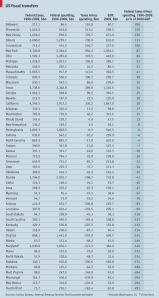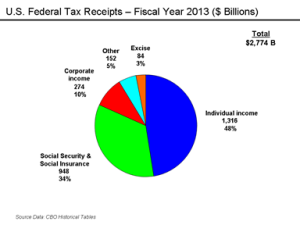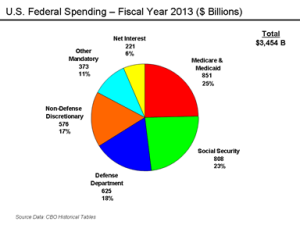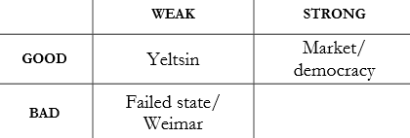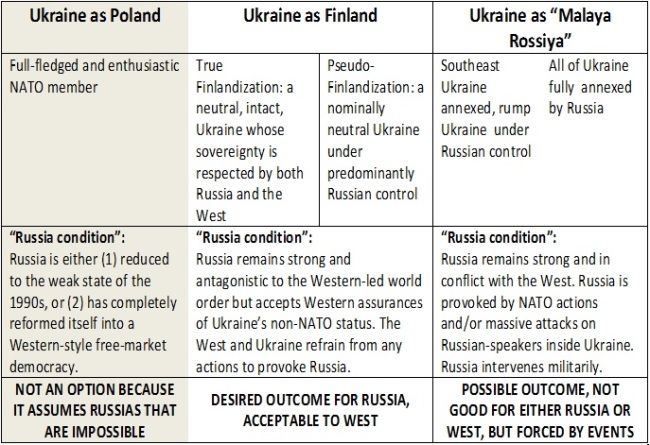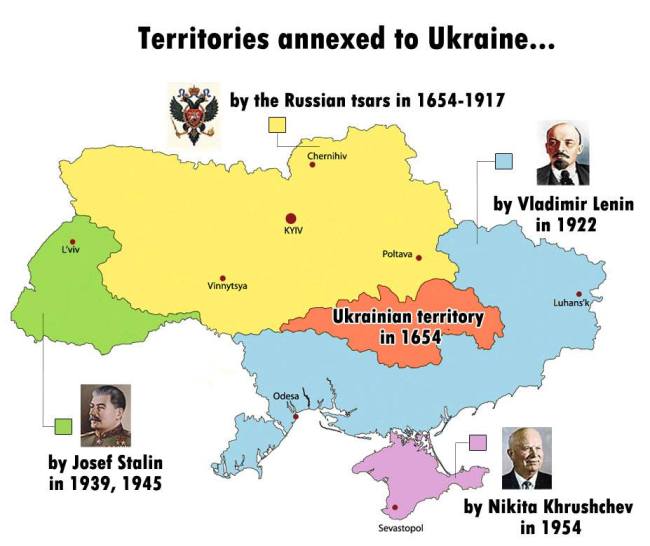Apparently Putin said something, for he is known to speak, and said comment was controversial. So controversial that it brought on a massive online debate with people e-fighting each other over it. And? Yes, it’s a mountain, not a molehill, but for reasons different from what the mass media will tell you, as the mass media is, as usual, behind the times. And I’m not talking about the New York Times, as they are behind the mass media. (BTW, when I’m using the “we” or “I” pronouns, I’m using it as a member of RuNet.)
Before continuing my attempt to upend this entire conversation, let me introduce myself, or rather, introduce what I do. I work in the predictive field, meaning that it’s my job to predict future trends, policies, market changes, war victors, etc. I’m good at what I do. Want an example? https://ucgsblog.wordpress.com/2014/06/09/the-box-not-seen/ It’s the only predictive piece I wrote on my blog, in June of 2014. Let me quote the relevant part: “All the boxes in that chart seem to be filled and it certainly makes sense from that perspective. However, consider this: Southeast Ukraine annexed, Rump Ukraine transferred to EU. Whoops. I’m not seeing that one on there.”
This is, de facto, what’s been going on: once Donetsk and Lugansk get near full autonomy, they will increase trade with Russia and bloom, whereas the pro-Western Ukraine, well, we’ve already seen their economic decline spiraling out of control. I’ve also outlined the conditions, which are in the process of being imposed on Kiev’s government, and if the latter disagrees, the country will fall apart.
- “Crimea to join Russia and be internationally recognized; DonBass to either join Russia, or receive autonomous republic status in Ukraine, like Crimea had
- Federalization of Ukraine
- Autonomous status for Southeastern Ukraine and Zakarpatiya, if the voters approve it
- Russian to be recognized as the official language of Ukraine
- Truly popular and democratic elections by region, with no candidates being beaten up or not allowed to run for office
I did not write this up to brag, or to toot my own horn. It’s been tooted by others plenty of times and that’s how I like it. Come at me [with compliments,] bro! The reason for that brief introduction, is because what I’m about to say is highly controversial, so here goes: Putin did RuNet a giant favor by making that comment. Yes, the comment that I’m referring to is the one about Lenin and the proverbial atomic bomb.
Let me quickly justify that. Did the comment split Russian society? Only on that specific issue. After he said that, are Russians anti-Crimea? Anti-demography? Anti-economy? Anti-Syrian Intervention? Aside from that specific issue, are the Russian split on anything as a result of said comment? Of course not! And one needs a good fight once or twice to keep his or her wits about. With Putin’s policies, RuNet has been getting complacent. Taking down idiots like pedophile Bykov is hardly a mental workout. “Don’t be an alcoholic, or you’ll be like Bykov!” It’s akin to moving your thumb to switch channels. But this, oh damn, this issue is most definitely up for debate!
And it’s about fucking time. The last time we had a genuine, underdog debate, was during the Ossetian War, where it was us against the mass media. And yes, they still try to talk about it, but that gets torn to shreds rather quickly. Using those skills, we were able to counter their bullshit on Crimea rather quickly. The point is that Russia needs a strong Civil Society and RuNet is the way to build it. But in order to be active, we need something that’s truly debatable. Something recent. Something controversial. Something like the claim that “Lenin planted an atomic bomb under the structure of Russia and then it exploded!” Controversial? Yes. Will it spark a lot of debate? Absolutely. And you know what? Bring it on! We need to confront our past, instead of letting others dictate our History.
One of the greatest achievements of British Propaganda was claiming that the French suck at war. Want to know what happened during the Franco-British Wars? France took Northern France away from Britain, and the Brits hid behind Europe’s most formidable moat – the English Channel. So the Brits lost half of their land and are forced behind a moat, by the French, and it’s the French that suck at war. Do you see what happens when people are too damn afraid to confront their past? And this tactic, of making us fear the confrontation of our own History is in full bloom. How many idiots say “you should be ashamed of what the Red Army did” and then go off into a nonsensical rant? Yeah, I should totally be ashamed of the Heroic Soldiers who saved my family from slavery and/or genocide because an entire one percent of desperately drafted men happened to be bad apples. Wait, what the actual fuck? Not even Dutch weed can get someone to be that high, so I’m guessing that it’s just genetic stupidity. Some people are born Einsteins, and some, reverse Einsteins.
Anyways, going back to Putin’s comment, whether you agree or disagree with it, you have to admit that it produced a lively debate, and that said debate did not cause any breach in Russia’s Blogosphere or other RuNet Resources. And that means that we’re successfully building Russia’s Civil Society. Did Putin intend this, or did he just get lucky? I’m going to argue for the latter, since Putin’s not a Historian, and it seems that he was just blurting out a frustration with the way that the USSR was set up. Rather, Putin’s a great demographer, and from a purely demographic perspective, the collapse of the USSR was an unmitigated disaster. Putin did say “whomever doesn’t miss the USSR has no heart, whomever wants it back has no brain.” And that leads me to conclude that Vladimir Trio o Quatro simply got lucky. Time for a song: https://www.youtube.com/watch?v=TlUsMuz9_RU
So with that established, let me just say a few words about Vladimir. When he came to power, he was viewed with suspicion, but had the “anyone’s better than an alcoholic” ratings bonus. He wanted to focus on improving demographics, but suddenly IIPB, an ISIS-style group, invaded Dagestan. They were called International Islamic Peacekeeping Brigade, even though there was nothing Islamic or peacekeeping about their brutal march through parts of Dagestan, brilliantly documented by British Historian Richard Sakwa. Putin’s first response was to rush the T-90s that were about to be shipped to India, to the front instead, cancelling the sale. The T-90s, equipped with T-72 crews, dashed into battle and routed the IIPB, although after the battle and being hit by numerous RPG rounds, their armor was anything but shining.
The Invasion of Dagestan by IIPB started the Second Chechen War. Once again Putin shined, by letting the military fight the war while serving as a morale booster and quartermaster. Within a year Groznyy was taken, and Putin could finally focus on rebuilding Russian Demographics, which he did. By 2006 Russia was living and breathing, a country of hope and legend, not one of fear and neglect of the 1990s. This was undoubtedly reflected in Putin’s approval rating. A few years peace and prosperity did wonders for the Russian economy, and when several 2008 crisis hit, the country was ready.
In August of 2008, Georgia’s resident idiot, erm, I mean totally democratically elected president, decided to spice things up in the Caucasus by invading South Ossetian, shelling civilians and attacking the legitimately stationed Joint Peacekeeping Base in the region. The peacekeepers were the only units not to have committed any violations in the Ossetian War, so shelling them proved ample casus belli, as if Russia needed one. The reformed military did something they weren’t expected to – they routed the Georgians thrice in the time span of two weeks. Putin’s approval rating surged. It was a great victory for Russia, one that finally stabilized the Caucasus. And then the anti-Russian media blitz hit. For the first time, the Western Media Blitz accomplished nothing. China was stunned. After the media blitz ended in failure, China reached out to Russia, in a move that would make the Shanghai Cooperation Organization one of the most powerful on the planet. There’s a reason why countries want to be in NATO or SCO. They don’t want to be invaded in the name of Human Rights or Rumpelstiltskin.
And then the economic crisis hit, caused by worldwide, (including Russia’s) banking mismanagement. The Russians reacted swiftly, and by 2010 said crisis was but a memory.
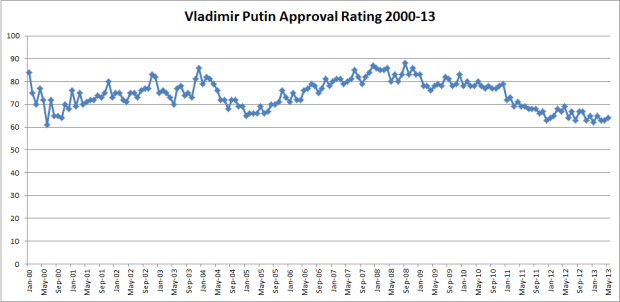
Putin’s approval rating reflected this, never once falling below 60 percent. Granted, the chart only shows the trend until 2013, but I can assure you, the trend continued. In 2014, the Sochi Olympics were successfully held as the pinnacle of Putin’s Caucasian Achievements. As the Brookings Institute notes: “Russia’s behavior did not change, nor did its evaluation of its own interests. What changed over time was Russia’s ability to conduct an independent foreign policy.”
Are any of the policies that I’ve discussed above under threat in Russia? Absolutely not. Most Russians support the Kremlin’s foreign policy, demographic policy, national policy, etc. Yes, the Kremlin’s economic policy needs quite a bit of work, especially since the Ruble was too closely tied to natural resources, and that needs to change. But overall, the Russians are in agreement on a lot of things, so it’s our time to start improving Civil Society through lively debate about our past, and I personally thank Vladimir Putin for completely inadvertently giving us a good topic for discussion: Vladimir Lenin. Anyone want a ticket to Finland?
With that said, let’s take a look at Putin’s quote, but before that, I want to point out that I support people who are bold enough to post on both sides of the debate; so let’s have at it, eh chaps?
“Управлять течением мысли это правильно, нужно только чтобы эта мысль привела к правильным результатам, а не как у Владимира Ильича. А то в конечном итоге эта мысль привела к развалу Советского Союза, вот к чему. Там много было мыслей таких: автономизация и так далее. Заложили атомную бомбу под здание, которое называется Россией, она и рванула потом. И мировая революция нам не нужна была. Вот такая мысль там”, – сказал Путин, завершая заседание президентского совета.
“It’s wise for the ruler to lead by sharing his thoughts with the population, but these thoughts must lead to good results, unlike Lenin’s thoughts did. In the end, Lenin’s thought led to the collapse of the USSR. He had many thoughts on regional autonomy. Said thoughts laid an atomic bomb under the building that’s called Russia, and later it blew up. We didn’t need a World Revolution.”
This shows the start differences between Putin’s, (and Imperial Russia’s) visions, and the USSR’s vision of what’s best for Russia. The Communists believed that Russia needed to lead the World into a new Age of Enlightenment, through Socialist Reform. Putin believes that Russia should stick to its own guns, and not run around the World looking to create Revolutions. The Communists were perfectly accepting of ethno-republics, whereas Putin and the Imperialists want(ed) a slow process of integration. This is an actual debate today in the EU, with the mass immigration playing a huge role as a catalyst. And while the debate in the EU is often violent, in Russia it’s limited to RuNet. This simply shows how far Russia came along in less than two decades.
Where do I stand on this notion? I agree with Putin in that it’s not up to Russia, (or any single country,) to run the World. It’s not up to Russia, (or any single country,) to superimpose its whims on a population of another country. The problem with Revolutions is that you simply don’t know who you’re going to get in the end. Few predicted Poroshenko’s rise and thus there was little that could be done to analyze his goals. On the other hand, Putin knew Konstantinov’s policies quite well when Crimea was annexed. Who’s more successful? Considering the demographic data, it’s undoubtedly Crimea. I can just as easily make the same comparison between unreliable Saakashvili and reliable Kokoituy. When Putin made that comment, he was basing it on personal experience.
Now let’s come to the crux of the comment: autonomy. It’s the long standing notion of who should have more power to govern, the local governments or the national governments. Considering that Putin’s a national leader who’s sick and tired of local corruption, it’s probably not hard to figure out where he stands. But, erm, Vladimir, there’s been national corruption too, remember Serduykov? I’d say that was corruption. Autonomy on its own is a complex subject to tackle, and thankfully I won’t have to, since Putin was talking about ethno-autonomy.
And ethno-autonomy is dangerous, since it almost always leads to persecution of innocent people. One of the arguments for ethno-autonomy is “your group fucked over my group, independence, fuck yeah baby!” but that very same argument will lead to massive persecution of the group that’s dominant in the country that one’s region is seceding from. Sometimes it can be peaceful, but not everyone is blessed with a Nazarbayev at the helm. Case in point: the Baltics. In 1989 there were 905,515 Russians in Latvia; in 2011 it was 557,119. 474,834 Russians in Estonia; in 2011 the number dropped to 326,235. In Lithuania – 344,455 Russians in 1989; in 2011 the number was at 176,913. The number dropped from 1,724,804 to 1,060,267. That’s a drop of 63 percent of the current population – if that’s not a demographic catastrophe, I don’t know what is!
That pales in comparison to Chechnya. In Russia there’s this group called the Committee of “Soldiers’ Mothers” whose actions possibly contribute to getting Russian soldiers killed. The great Russian military leader, Alexander Suvorov, stated “hard in training, easy in battle”, meaning that it was better to have truly tough training and lose a few soldiers than to lose an entire division on the battlefield. The Committee of “Soldiers’ Mothers” has, allegedly, done everything in their power to sabotage the tough parts of the training. And yet, for some odd reason, (perhaps at the request of their sugar daddy,) they’ve ignored Russian civilian losses in Chechnya. In 1989, there were 269,130 Russians living in Chechnya. By 2002 said number dropped to 40,645. Some ran away, some were killed, others were enslaved, and yet where were these self-dubbed “Human Rights Experts?” That’s the results of Gorbachev’s much lauded Perestroika, and other nonsense supported without putting a single brain cell into its effects. Should he be executed? If he is, I won’t shed any tears.
And then comes the question of ethno-autonomy, Soviet style. Why was Crimea transferred to Ukrainian SSR? Why wasn’t Lugansk a part of Russian FSFR? Why was Pridnestrovie a part of Moldova’s SSR? Why wasn’t Nagorno-Karabakh part of Armenian SSR? How did Ossetia end up in two different SSRs? Who the fuck came up with these nonsensical borders? What was the border of the Russian FSFR and the Belarussian SSR based on? No one in their right mind would actually draw these borders, but they were drawn by the Communists. Why? This goes back to Lenin’s Idea of World Revolution that Putin was talking about.
If you’re looking at it from the perspective of a World Revolution, none of the borders or the transfers actually matter, because the World will be united in a kumbayah ceremony or whatever. If you’re looking at it with sane eyes, you would move to eliminate these borders at the first chance, and that chance happened in 1945. Have you ever heard of August Storm? My guess is that you haven’t, even though it was one of the most brilliant military operations to be conducted where the Red Army and the Red Navy captured more Japanese POWs in a two week time-span than the allies did during several years of warfare. One could even posit that after seeing what the Red Army and the Red Navy were capable of, Truman decided to drop the second atomic bomb on Nagasaki to show Stalin that he had weapons of mass destruction and was quite willing to use them.
However, by 1945 the Soviets could do whatever they wanted in the part of Eastern Europe that the Soviets controlled, in China, Mongolia, North Korea, and the list goes on. If in August of 1945 the Soviet Leadership would simple annex a good chunk of those countries into the USSR, few would protest any louder than they already did, and those few didn’t matter. Not only did Stalin fail to annex, he deliberately kept the numerous SSRs and even created new ones. Was he guided by Lenin’s idea when he did so? Putin would argue that he was. Instead of having the Russian Empire, there was now the Russian Soviet Federative Socialist Republic, surrounded by a bunch of SSRs acting as the secondary shield, in turn surrounded by the Warsaw Pact, acting as a primary shield. Why was this necessary?
And here’s where ideas matter. If one was guided by the idea of the Imperial Russia, annex the SSRs into the RSFSR and maybe, (a big maybe here,) turn the Warsaw Pact members into SSRs. But if one was guided by the idea of a World Revolution, then it would be important to keep the numerous SSRs as they are, to show that under Communism the local power would still be kept, no matter how large or small it was. This was the idea followed by Stalin, when he made the choice of the SSR split, thus keeping Lenin’s proverbial atomic bomb intact. This is the power of a wrong idea that Putin was addressing.
At least that’s just my take on the situation, what’s yours? I don’t expect you to agree with me on it, but I do expect you to agree that it’s a good thing that we’re having a mature debate over a complex and heart warming/heart cooling topic, in a mature atmosphere. That, alone, is awesome in my book, and I hope it is in yours.
The question is – what now? There’s no point in restoring the USSR, as that ship sailed in the 1990s, while the “glorious lealders” in the Kremlin were drunk on money and very drunk on alcohol. We have to look at the situation as it is, not as it was. Just because it was illegal for the Baltics to secede, doesn’t mean that it’s time to reconquer the Baltics – that’d be stupid. Learning from History is a must, but living in the past is a mistake, and that’s the balance that a Historian, or a Policy Maker, must maintain.

